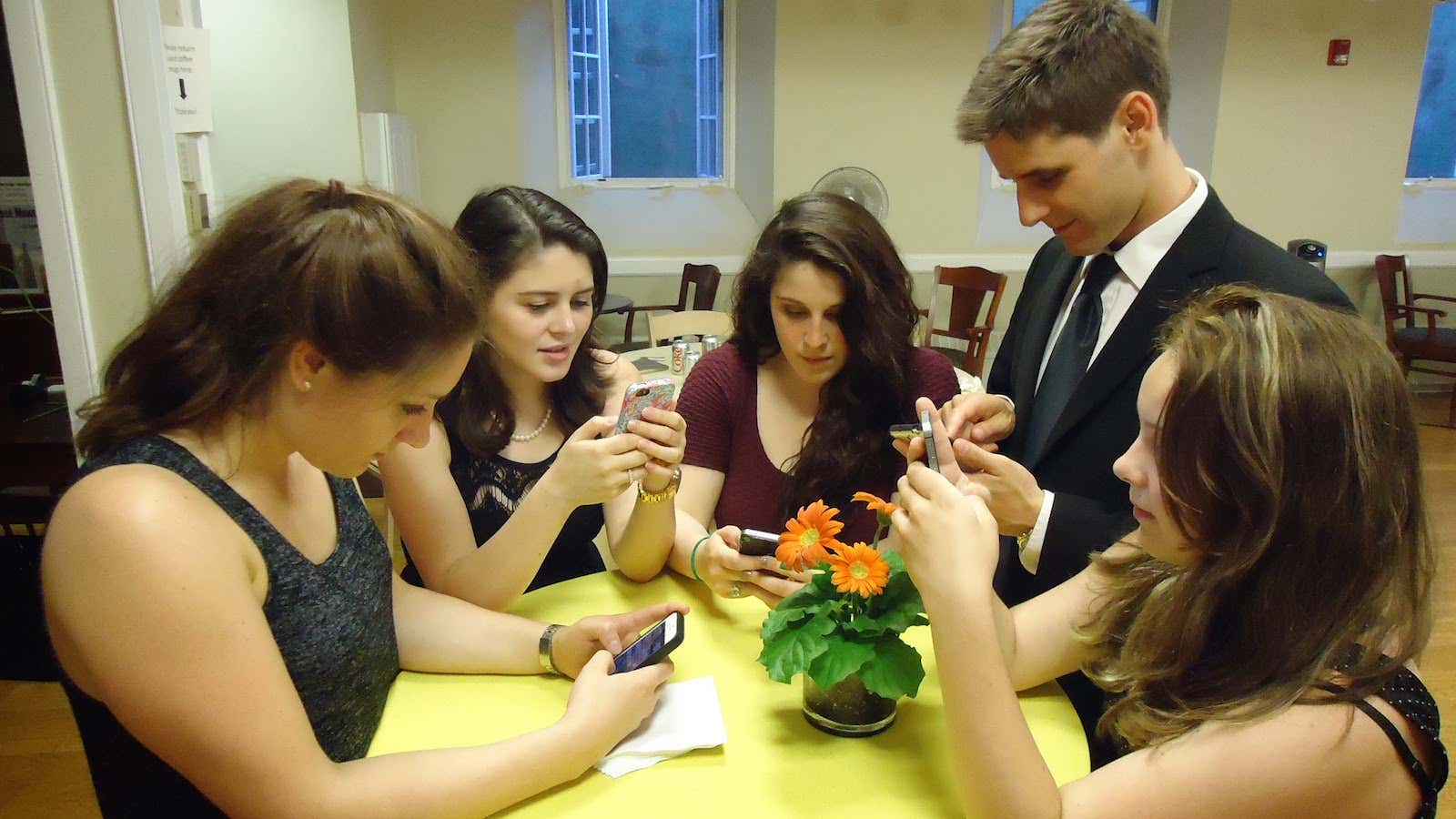Having the world at our fingertips around the clock takes a lot of the pressure off our minds to remember basic facts. But the ability to find answers on search engines like Google is also killing our memories, a recent report (pdf) by cybersecurity firm Kaspersky Lab shows.
When asked a question, one-third, or 36%, of Europeans said they would look up the answer online before trying to remember it and 24% admitted they would promptly forget the information after using it, the report found.
The study, conducted by UK-based market research firm Opinion Matters, surveyed a group of 6,000 men and women over the age of 16 from the UK, France, Germany, Italy, Spain, and Benelux earlier this year to see how technology impacted their memories.
“Looking up information online, instead of trying to recall it ourselves, makes us shallower thinkers,” said Dr. Maria Wimber of the University of Birmingham’s School of Psychology, in a statement. “Passively repeating information (e.g. by repeatedly looking it up on the Internet) does not create a solid, lasting memory trace.”
And we’re forgetting more than just the little things we look up sporadically, like directions to a restaurant, or the name of the actress on Law and Order or who won the last World Cup. Our reliance on technology is damaging our ability to remember boilerplate information from our daily lives, the report found.
The vast majority of parents in the group who were surveyed couldn’t dial the telephone number of children’s schools from memory, and more than half couldn’t call their kids’ cell phones without looking up the number first.
It’s hardly shocking then that most people surveyed would feel sad or panicked if they lost their connected devices, since they often remember more about our lives than we do.
Image by Tomwsulcer on Wikimedia Commons, licensed under CC0.
